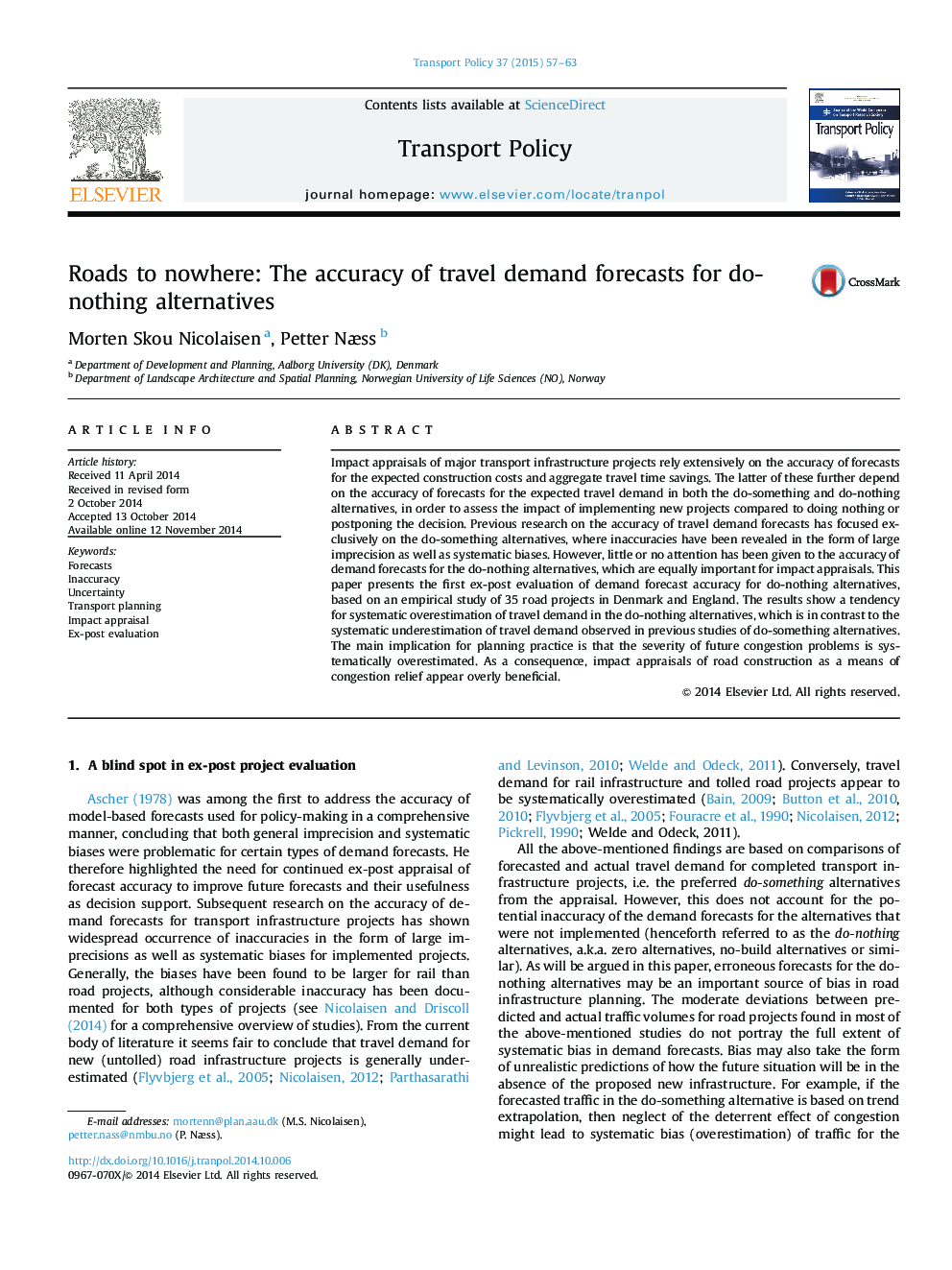| Article ID | Journal | Published Year | Pages | File Type |
|---|---|---|---|---|
| 1064914 | Transport Policy | 2015 | 7 Pages |
•Analysis of demand forecast accuracy for road projects in Denmark and England.•Results show that traffic volumes are exaggerated for the do-nothing options.•The consequence of this is a systematic overestimation of benefits for new road construction.•Ex-post analysis of counter-factual scenarios recommended as a new research area.
Impact appraisals of major transport infrastructure projects rely extensively on the accuracy of forecasts for the expected construction costs and aggregate travel time savings. The latter of these further depend on the accuracy of forecasts for the expected travel demand in both the do-something and do-nothing alternatives, in order to assess the impact of implementing new projects compared to doing nothing or postponing the decision. Previous research on the accuracy of travel demand forecasts has focused exclusively on the do-something alternatives, where inaccuracies have been revealed in the form of large imprecision as well as systematic biases. However, little or no attention has been given to the accuracy of demand forecasts for the do-nothing alternatives, which are equally important for impact appraisals. This paper presents the first ex-post evaluation of demand forecast accuracy for do-nothing alternatives, based on an empirical study of 35 road projects in Denmark and England. The results show a tendency for systematic overestimation of travel demand in the do-nothing alternatives, which is in contrast to the systematic underestimation of travel demand observed in previous studies of do-something alternatives. The main implication for planning practice is that the severity of future congestion problems is systematically overestimated. As a consequence, impact appraisals of road construction as a means of congestion relief appear overly beneficial.
